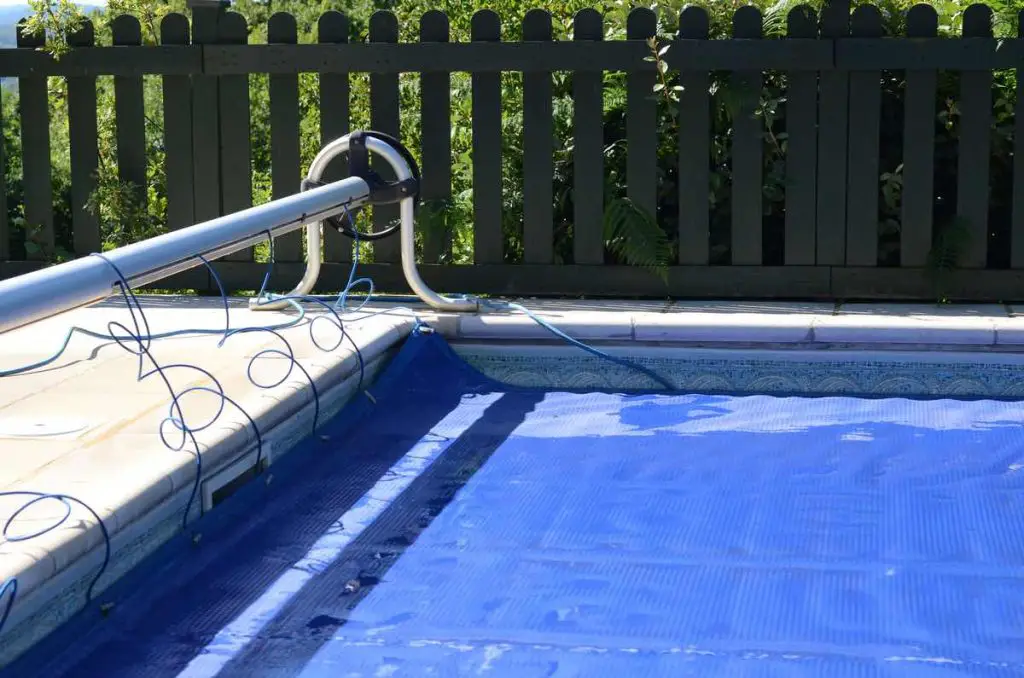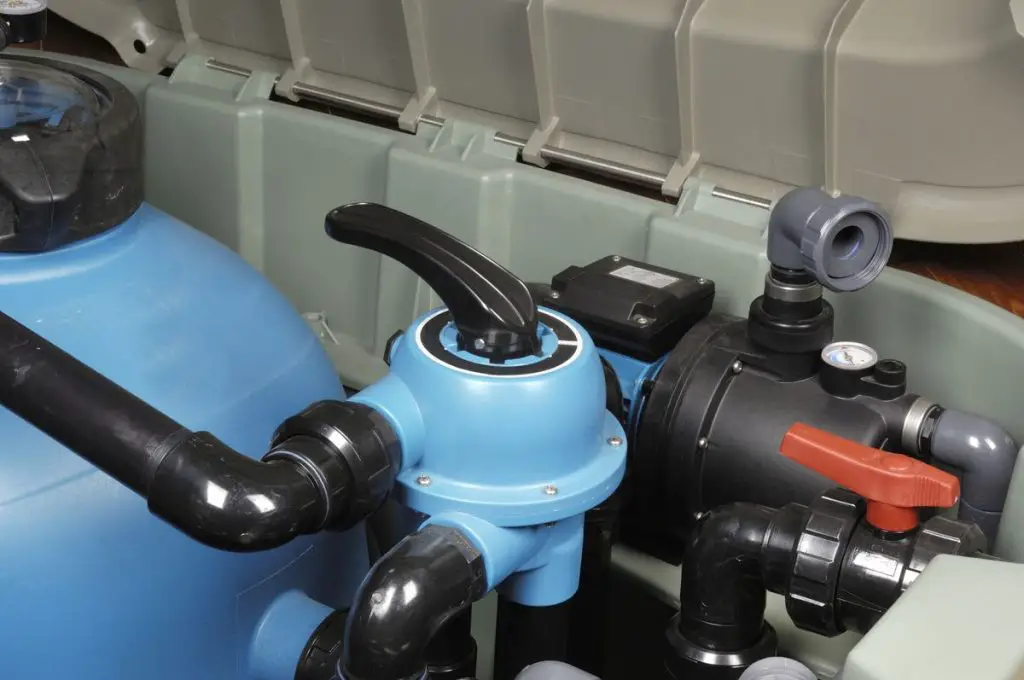A pool heater helps exchange cold and hot water in a swimming pool to maintain a comfortable temperature. These systems are a treat to heat the pool during the winter and allow people to enjoy swimming all year round. However, a pool heater can backfire for many reasons, causing it to malfunction.
The most common things that can cause a pool heater to backfire are a buildup of sediment inside the filter, ignition and venting issues, or a faulty thermostat. Other causes are low gas pressure for gas heaters, a clogged burner orifice, or poor installation.
A pool heater is a costly investment, so it is crucial to know what can cause it to backfire. This article will discuss some of the most common things that can cause a pool heater to backfire and how to prevent it from happening in your backyard.

1. A Buildup of Sediment in the Pool Filter
Several things can cause a pool heater to backfire. The buildup of sediment is a significant cause of heater backfire. Pool owners must clean out their filters regularly to prevent this from happening.
The buildup of sediment in the filter can cause the heating system to malfunction. Leaves and other debris caught in the filter can clog it up, making it difficult for the heater to circulate water properly and heat up properly.
Pool heaters may also experience sediment buildup due to the water source in your pool. While each water supply may differ, well water is more likely to cause sediment buildup due to high mineral content. The most common sediment-causing elements are calcium, magnesium, iron, and lime.
How To Fix It
When you have a pool heater, it’s essential to keep the filter clean and clear. It is also necessary to flush your unit at least twice every year to get rid of any debris and sediment in the filter. Also, if you notice that your pool water has turned cloudy or murky, it’s time for a new filter.
You can also contact pool maintenance technicians to help clear any clogs in your pool heating system. They can recommend the most appropriate fixes, like replacing the pool heater filter.
Although you can heat your pool without a filter, I don’t recommend it. Doing so can leave your pool dirty and cause more work than necessary. Read more about the other reasons in my full guide. [Can You Run a Pool Heater Without a Filter?]
2. Pool Heater Ignition Issues
Sometimes your water heater may experience ignition issues causing it to produce loud popping sounds. If the gas in the burner chamber has no outlet, the excess gas may cause the sounds once ignition occurs. A clogged burner orifice, faulty wiring, or a dirty blower can also lead to ignition issues in your pool heater.
Pool heaters can cause a lot of damage if they backfire. A blocked pool heater gas line can also cause various issues with the pool heater, such as ignition problems, leaks, and carbon monoxide poisoning.
How To Fix It
Backfiring pool heaters are not always safe to use, and you should always consult your pool heater manual before trying to use one. If you notice that your pool heater is producing strange sounds, it’s best to contact a professional for help, as this could indicate a blockage in the gas line that you will need to clear.
3. Improper Gas Heater Venting
There are two types of pool heaters—gas and electric. These heaters must be vented for safety reasons, especially if installed indoors. Poor ventilation can cause the heater not to ignite or produce loud popping sounds if there is inadequate air getting into the combustion chamber.
A gas-powered pool heater can backfire if you don’t ensure adequate vents. Lack of ventilation is a potentially dangerous scenario—you could create a carbon monoxide leak that could be deadly to you and your family.
A pool heater should always be vented to the outside air so that any possible carbon monoxide leaks can dissipate into the atmosphere before they reach your lungs or home.
Proper venting also ensures proper combustion and prevents soot buildup. A poorly ventilated pool heater could have problems cycling and exerting air. In most cases, ventilation problems result from improper pool heater installation.
How To Fix It
Many people are unaware of the importance of venting their pool heater. Poor ventilation can cause serious problems like carbon monoxide poisoning, fire, or even death.
To avoid the pool heater backfiring, you must take precautions. You should ensure that the vent is not blocked and that there are no objects in the way. If you’re unsure how to vent your pool heater or need more information, consider talking to an expert for more information and assistance on this issue.
4. Faulty Pool Heater Thermostat
The pool heater thermostat controls the ignitor and tells it when to heat the pool. A broken thermostat can limit the work of the ignitor, causing it to backfire. Long-term usage, corrosive salinity, acidic water, and other elements can damage the thermostat.
The thermostat on a pool heater is vital because it controls the temperature of the water. If you use a gas heating system, some things can cause it to backfire and not work as it should. One of the most common causes of this is a faulty thermostat.
If the thermostat does not work correctly, the heating system will overheat and damage your home’s wiring. A pool heater’s thermostat keeps the water at a specific temperature by regulating the amount of gas that enters the heater. If there is too much gas, it will backfire and cause an unsafe heat level in the pool.
How To Fix It
The pool heater may not be able to maintain the proper temperature, or the pump may stop working if the thermostat is faulty. The best way to fix a defective thermostat is to replace it. You can refer to the user manual for a detailed guide on replacing the thermostat or call a qualified technician for assistance.
5. Low Gas Pressure in the Pool Heater
Many factors can cause a pool heater to backfire. One of the most common causes is the low gas pressure in the pool heater. Low gas pressure can cause your pool heater to malfunction. The ignition spark will not create a flame if enough gas does not reach the ignitor.
This issue can occur due to a clogged gas line, gas leak, or a slightly closed heater gas valve. If you don’t ensure that you install the pool heater correctly—or the gas pressure in the pool heater is too low, the gas may not be able to reach the burner.

How To Fix It
If your pool heater is not heating up or it’s producing strange sounds due to a gas pressure issue, there are a few things you can do to fix it:
- Check the gas pressure on the pool heater.
- Check for leaks in the system.
- Make sure that no debris blocks the flow of gas in your system.
- If none of these work, call a professional service technician to fix it for you!
Sources
- U.S Water Heating Solutions: Water Heater 101: Unusual Water Heater Sounds Solved
- Shoreline Pools: How do Pool Heaters Work?
- DIY By Hand: How Do You Know if Your Pool Filter Is Clogged? 5 Quick Tips
- Poolcare Specialists: Why Is My Pool Heater Making a Strange Sound?
- AC Heating Connect: Gas vs. Electric Pool Heaters for your Facility
- INYO Pools: How a Pool Heater Operates
- Temperature Master: Pool Heater Not Igniting? Here’s Why (+ How to Fix)
